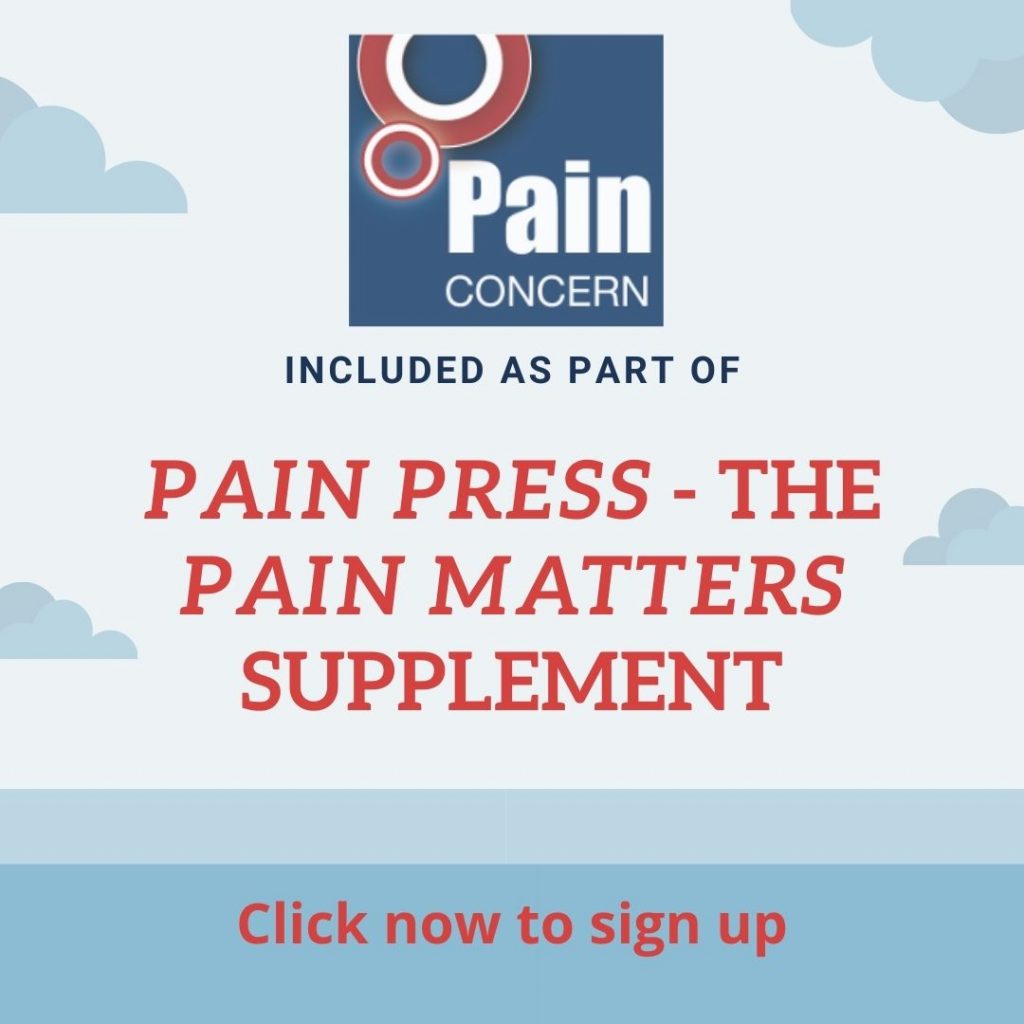Signalling for Support – Navigating Life with a Hidden Condition
This is an article by the Brain & Spine Foundation and was included in the March 2022 issue of Pain Press – The Pain Matters Supplement.
Not all disabilities, conditions or illnesses are visible. Chronic pain, alongside a wide range of other symptoms and conditions, belongs to a group of disabilities that are ‘hidden’ or ‘invisible’. These are disabilities that cannot be seen or are not immediately obvious to others. Not everyone with an invisible illness considers or describes themselves as being disabled and some might argue that what they experience is not as invisible as the phrase implies – it is simply that people do not look hard enough or, worse, dismiss what they do see. However, regardless of the condition, symptom or how each individual feels most comfortable describing themselves, people who are part of this community face many of the same burdens.
Having a hidden disability creates challenges and barriers that those without one simply do not face, and this goes far beyond the day-to-day management of your condition, pain or other symptoms. One of these challenges is letting other people know you may need additional support or understanding in certain situations. Discussing something so personal, so often can be draining and there may be trauma involved or simply details you would rather not share, which is your right.
Sometimes, a lack of understanding can lead to others doubting you or demanding proof of your condition – such as when using accessible facilities (e.g., toilets or changing rooms) or requesting a priority seat on public transport. These situations are stressful and can have a real impact on your wellbeing – which is why it is important to understand how to access support where it is available.
Sunflower lanyards
The Sunflower lanyard scheme was started by the accessibility team at Gatwick Airport in 2016 and is now a globally recognised symbol – designed to enable people with hidden disabilities to discretely access support.
In the UK, a growing number of shops and public services are offering customers the opportunity to collect and wear a ‘Sunflower lanyard’ or pin badge. Staff are supported with training to recognise the Sunflower and understand that someone wearing one may need a little extra help.
Visit the Sunflower scheme website to find out more.
Accessible facilities
Many supermarkets, businesses and public venues now have signs on their accessible facilities which highlight that ‘Not Every Disability is Visible.’
This initiative was kick-started by a young person, Grace Warnock from East Lothian, who has Crohn’s disease. Grace wanted to help raise more awareness and understanding of hidden disabilities or invisible illnesses by introducing these updated and inclusive signs.
You can find more out about the ‘Not Every Disability is Visible’ campaign here.
Making transport more accessible
‘it’s everyone’s journey’ is a Government-led campaign that is championing equity of access on public transport. This campaign is aimed to encourage everyone to be more mindful of their fellow passengers and to make public transport more inclusive.
You can also find more information about accessible facilities and other relevant information on the ‘everyone’s journey’ website.
Blue badge sign
In 2018, it was announced that the Blue Badge scheme for parking within the UK would begin accepting applications from people with hidden disabilities. Previously, Blue Badges were only available to those with obvious physical disabilities. This recent change now also allows people with hidden disabilities or conditions to park in disabled bays.
You can find details on the eligibility criteria and how to apply for a Blue Badge on the GOV.UK website.
More support is needed
Although we hope the above information may help you tackle some of the barriers and challenges you face, we understand that more support is still needed – on both a personal level and a social level.
Alongside other charities, the Brain & Spine Foundation is working to drive change and improvements in policy and wider society to increase everyone’s awareness and understanding of hidden disabilities. Day to day, we provide a helpline service and peer support groups to enable people affected by neurological conditions to find the information and support they need, and to be part of a community that understands and values them.
Luke Stamatis is Information Manager at the Brain and Spine Foundation
More on neuropathic pain & the brain
- Airing Pain #131 — Face Pain, Treatment & Management
- Airing Pain #127 — Taking the Sting out the Tail of Neuropathic & Parkinson’s Pain
- Airing Pain #124 — Diabetic Neuropathy
- Neuropathic Pain Leaflet
- Pain Matters Magazine Issue 73 — Neuropathic Pain Special
- Amitriptyline
- Airing Pain #115 — Neuropathic Pain 1 of 2 — Targeted Pain Management Programmes
- Airing Pain #116 — Neuropathic Pain 2 of 2 — Latest Research
- Airing Pain #112 – Measuring Pain, Reading the Brain
- Airing Pain #68 – The Brain and the Genes



